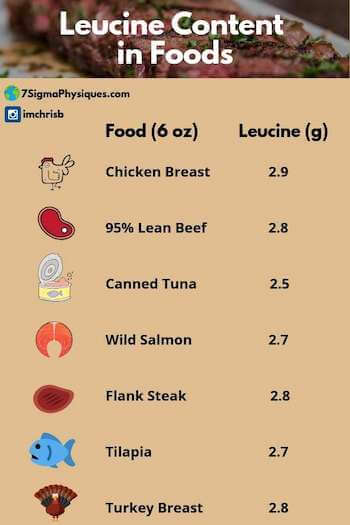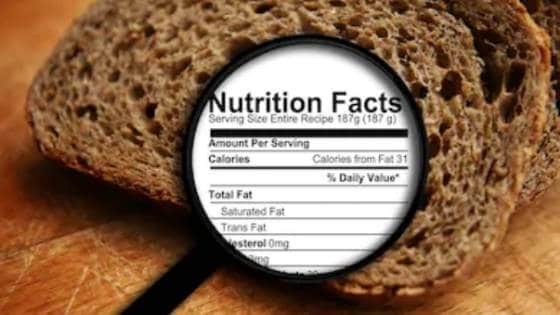Here’s a quick question for you, why was the protein self-conscious?
A: Because of how much it wheys!
Holy guacamole, that was whey too funny. Okay, I’m gonna stop with the puns now. Let’s get going with today’s topic!
What Do People Believe?
The common belief is that the body can only absorb 20-25 g of protein in one meal and that anything above that will be used as energy or urinated.
For this reason, people suggest spacing protein across 4-6 meals; however, to better understand this reasoning, we first need to define absorption.
Table of Contents
How Much Protein Can Your Body Absorb in One Meal?
Absorption is used to describe the process of food traveling through your GI tract and then nutrients being absorbed into circulation.
Studies (1) have shown that your body can absorb an almost unlimited amount of protein, it would just take longer to digest.
What Affects Absorption?
This almost unlimited absorption is only limited by certain attributes in a protein.
For example, you would absorb less protein from consuming 100 g of raw eggs, compared to 100 g of cooked eggs.
A study (2) found that only 51% of the protein in raw eggs is digested after consumption, compared to 91% for cooked eggs.
Cooking the eggs alters their protein molecules, giving your body better access to the peptide bonds that hold together amino acids.
When you eat raw eggs, your digestive enzymes can’t penetrate those peptide bonds as easily, which leads to less protein being absorbed.
Most protein sources, like cooked eggs, meats, and whey protein are more than 90% digestible.
How Much Protein Is Actually Used for Building Muscle?
A better question would be, how much protein is actually used for building muscle?
A few studies found that consuming more than 20 g of protein didn’t have any extra benefit on muscle protein synthesis (MPS).
This study (3) showed that subjects who consumed 40 g of protein from cooked eggs after a lower-body workout showed no difference in muscle protein synthesis compared to those who consumed only 20 g.
This other study (4) found that eating more than 30 g of protein from beef also had no extra benefit in muscle protein synthesis.
This last one (5) actually showed that eating more than 20 g of protein increased urea production, a nitrogen disposal compound, and protein oxidation.
Start your journey to losing 24-60 pounds in just 12 weeks.
Get the free 12-Week Fat Loss Challenge Training Guide!

Should I Only Consume 20 g of Protein Per Meal?
From the previous studies, it may seem that 20 g is enough, however, this will depend on a few other factors, such as leucine content of the meal, how much muscle mass you have, your age, and muscle group trained.
That’s why it’s important that you find what your TDEE and macronutrient requirements are.
- Leucine
The amino acid leucine appears to have an important role in triggering muscle protein synthesis.
Muscle protein synthesis seems to max out at 3 g of leucine, however, it’s important to remember that leucine alone won’t be beneficial and you should consume other essential amino acids with it. (6)
Leucine content depends on the protein source.

For example, if you’re eating steak, you may need 40 g of protein from that steak to get enough leucine. On the other hand, if you’re eating wheat, you may need over 50 g of protein from it.
- Amount of Muscle Mass
The more muscle mass you have, the more protein you’ll need for MPS.
This review (7) showed that 0.18 g of protein per pound of bodyweight per meal is where MPS reached its peak.
For example, MPS would peak at 36 g for a 200 lb person, but at 27 g for a 150 lb person.
- Age
The older we get, the less sensitive we become to lower doses of protein. Therefore, older individuals often require higher amounts of protein to stimulate MPS. (8)
- Muscle Group Trained
It seems that the more muscle groups you train, the more protein you need for MPS.
In this study, (9) subjects who did a full-body workout and had 40 g of protein after training showed better MPS than those who only had 20 g.
Since subjects in this study did a full-body workout instead of a lower-body one, like in the previously mentioned study, (3) researchers believe that the more muscles you train, the more protein you’ll need.
Meal Frequency
This meta-analysis (10) of 15 studies found that there wasn’t a significant difference in weight loss and body composition change when eating anywhere from 1 to more than 5 meals a day as long as calories were equated.
This is good news for those who like implementing some sort of intermittent fasting to their routine.
So How Much Protein Per Meal?
Scientific literature seems to show that the most important factor for building muscle, besides resistance training, is total daily protein intake, regardless of how it is spaced out.
Some studies (11, 12) suggest that spreading protein evenly across 3-6 meals may be better for MPS; however, these studies only looked at MPS in acute periods and didn’t look at long-term changes in muscle mass.
If you’re having trouble reaching your daily protein requirements, using a protein powder supplement might be of great help.
There are also great plant-based options.
To Summarize
The body can absorb an almost unlimited amount of protein, it will just take it longer to digest.
How much protein to eat per meal will depend on the leucine content of the meal, your current muscle mass, age, and muscle groups trained.
Research shows that total daily protein intake, regardless of how it is spaced out, is the most important factor for building muscle (aside from resistance training).
However, physique and strength athletes may benefit from spacing protein intake evenly across 3-6 meals.
I hope you loved this article about how much protein your body can absorb in one meal!
If you’re ready to start your weight loss journey, the 12-Week Fat Loss Challenge is the place to start!

This plan helps men and women lose fat without starving themselves or giving up their favorite foods.





